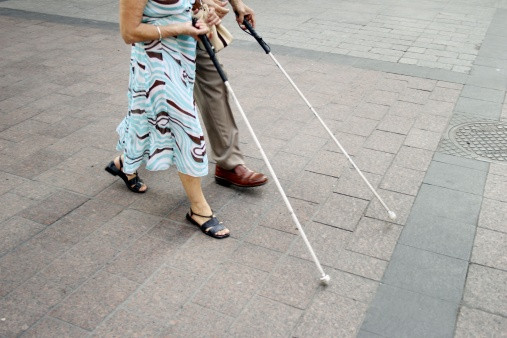How the brains of blind people are rewired to boost their other senses
MRI scans have identified multiple changes to the brain of blind participants.

The brain of blind people goes through anatomical and functional changes to compensate for the absence of vision, scientists have said. This may result in all their other senses being enhanced.
Many studies have suggested that blindness from birth or early childhood is associated with a rewiring of the brain, but there has been some degree of inconsistency in the findings.
"These inconsistencies may be due to the methods that were used, the way the data were analysed, or the characteristics of the individuals that have been studied (e.g. their level of education, independence etc...), Corinna Bauer, scientist at Schepens Eye Research Institute of Mass. Eye and Ear and lead author of the study, told IBTimes UK.
"We have looked at the entire brain, but most others have only focused on changes in one or two regions."
Published in the journal PLOS ONE, her research is based on multimodal MRI scans, which were used to identify how the brain is reorganised functionally and structurally by early blindness.
A look into the brain
Bauer and her colleagues focused on a group of 12 subjects who had been born blind or had developed blindness before the age of three. All were well integrated into society and capable of living independently. They compared these brain scans with that of 16 people with normal sight and in the similar age range.
The team observed structural and functional connectivity changes in people with early blindness, including evidence of enhanced white matter connections and increased cortical volume, compared with normal-sighted participants.
"We were a little surprised to see how widespread these structural and functional changes are across the brain but it makes sense to observe a strengthening of the non-visual areas of the brain," Bauer pointed out. The findings suggest that in the absence of vision, the brain rewires itself, potentially boosting other senses.
Although this particular research does not look at the changes in the brains of people who become blind later in life, it is unlikely that they will be as significant as in people with early blindness. Other studies have shown that functional and structural changes do occur in their brains, but to a much lesser extent, potentially because the brain of people is less plastic as they age.
Understanding these connections may be useful to come up with improved educational plans to help help rehabilitate blind people.
© Copyright IBTimes 2025. All rights reserved.






















